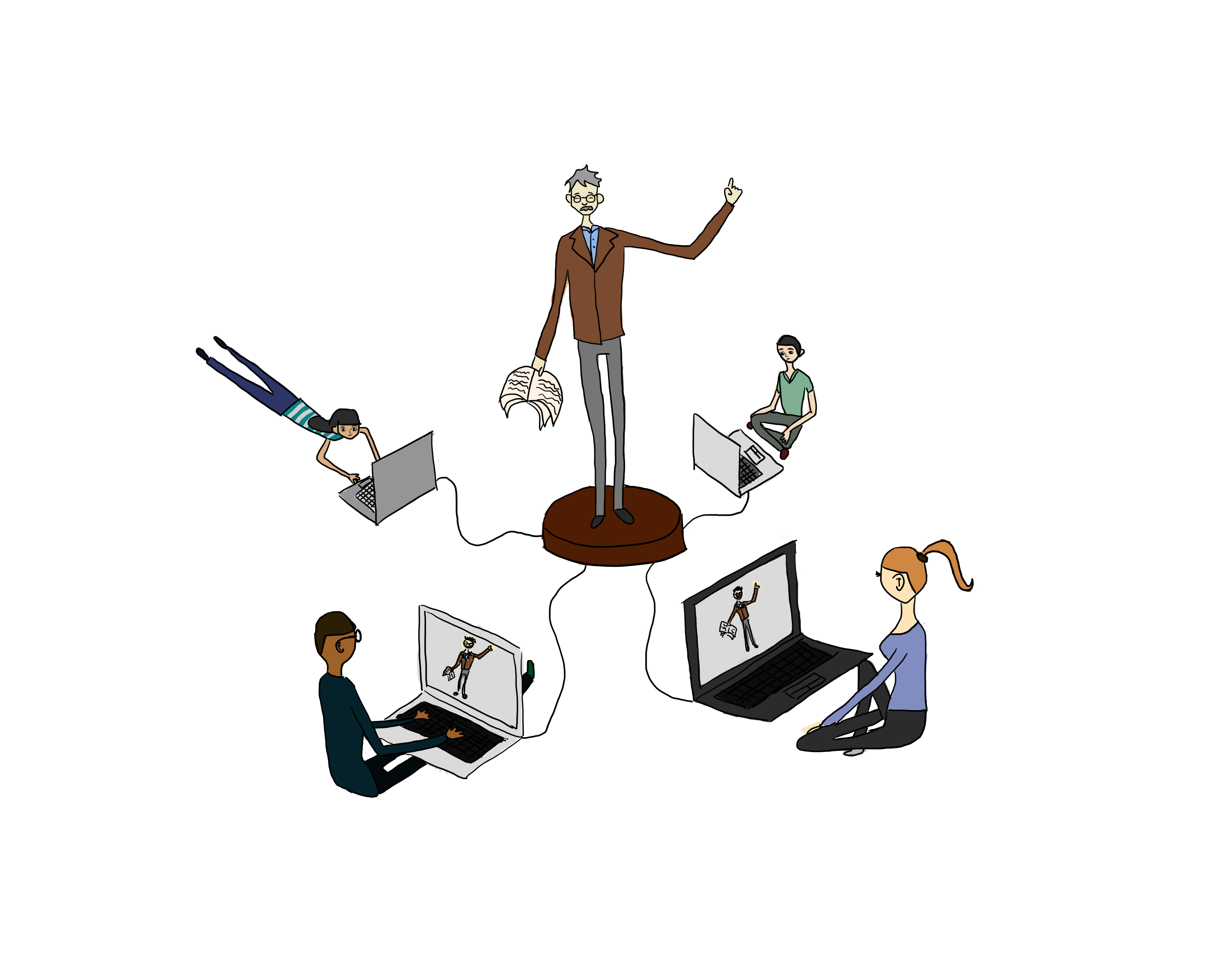Yiwei Sun: Benefits from flipped courses far outweigh concerns

(Kimberly Ann Striegel/Daily Bruin)
By Yiwei Sun
March 4, 2015 12:27 a.m.
Unlike my other classes, which require me to show up nearly an hour early to secure a seat so that I don’t have to sit on the cold floor, Linguistics 1 allows me to grab a leisurely cup of coffee and take my time to load the online lecture on my laptop.
Linguistics 1 is one of the flipped courses offered in winter 2015. Flipped courses have students watch lectures online, go in person for a physical discussion section and physically sit the final exam.
Flipped courses grant students flexibility and benefit non-native English speakers who may have a hard time keeping up in a regular lecture hall. UCLA should look into expanding flipped courses, particularly for classes that emphasize graphics and media.
The most prominent feature of a flipped course is the fact that students can watch the recorded lectures online any time. It allows students to plan and manage their studies more flexibly and effectively. With a simple click, students can pause the video and review the previous content. With the lecture videos online, students will no longer worry about not being able to get up early enough for lectures and missing lecture content due to occasional absence.
Moreover, flipped courses are especially helpful to students who sit at the back of the lecture hall in the traditional classroom setting, students who are non-native speakers and students with disabilities. Traditionally, students sitting at the back of the lecture hall experience difficulty catching what the professor is saying. In the same vein, non-native speakers sometimes have trouble understanding professors, and students with hearing disabilities have to bring an interpreter to translate the lecture content. With the videos and subtitles available, these students now have an equal opportunity to grasp the course materials as they adopt their optimal learning style, whether it’s listening, watching or reading.
There are worries that flipped courses would be redundant because they are similar to the lecture recordings available on BruinCast, which also increase flexibility for students. But while both do seem to have similar functions, flipped courses are essentially different because the online videos are especially designed to include relevant graphics and videos for optimal learning. Classes that are heavy in graphics or media content could especially benefit from this medium of teaching. Moreover, students taking flipped courses don’t need to worry about missing important announcements in class because the entire curriculum and teaching instructions are designed to work well with the lecture recordings.
One of the heavily debated concerns about flipped courses is that online lectures would prevent real-life interaction between students and instructors. The concern is indeed valid, but classroom interaction is not an issue in all lecture settings. In fact, in a traditional large lecture hall setting with 200 students, the interaction between students and professors is minimal. Converting large general education courses into flipped courses won’t impair students’ learning at large because there are still office hours and physical discussion sessions in place for students to ask questions and discuss topics with each other.
Flipped courses have positive financial benefits, too. Implementing online lectures eliminates the cost and space restraints of operating lecture halls. For example, the Linguistics 1 videos are developed in collaboration between the department of linguistics and the UCLA School of Theater, Film and Television to keep the expense low.
Students might also worry that large enrollment capacities for online courses would supersede the need for a variety of general education offerings, with one online class taking the place of several general education options. However, students are still required to enroll in physical discussion sections, which uphold the quality education of a small class discussion.
Ultimately, concerns about flipped courses are outweighed by their immense benefits, especially for non-native English speakers or students with disabilities. It’s UCLA’s responsibility to provide this alternative option to students in greater numbers and variety.


